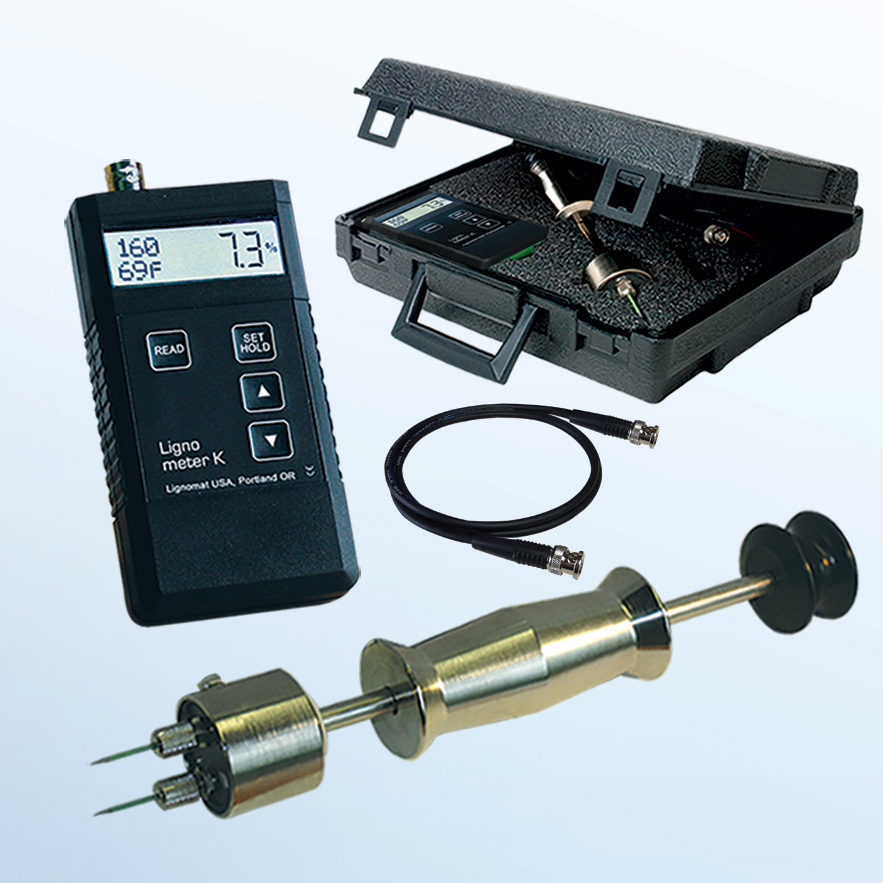How a Moisture Meter Can Improve Your Construction Projects and Avoid Damage
How a Moisture Meter Can Improve Your Construction Projects and Avoid Damage
Blog Article
The Ultimate Guide to Moisture Meters: A Comprehensive Overview and Exactly How They Can Save You Money
In the world of structure upkeep, building and construction, and numerous sectors, the value of precisely measuring moisture degrees can not be overstated. Moisture meters offer as crucial devices in discovering and keeping an eye on moisture content in products, helping in avoiding costly problems and guaranteeing the quality of items. Understanding the subtleties of different kinds of wetness meters, their applications, and the potential cost-saving advantages they provide can be a game-changer for businesses and professionals alike. Uncovering how these tools can not only simplify processes yet also add to financial cost savings is a journey worth beginning on.
Kinds Of Moisture Meters
Different sorts of moisture meters are readily available for different applications in different sectors. One common type is the pin-type dampness meter, which measures the electrical resistance in between 2 pins inserted into a product. This kind appropriates for timber, drywall, and various other building materials. Pinless moisture meters, on the other hand, usage electro-magnetic sensor plates to check a larger location without triggering damages to the material's surface. These meters are optimal for rapidly evaluating dampness degrees in large areas such as wall surfaces and floors.
Infrared dampness meters determine the thermal residential properties of a material to determine its dampness material non-invasively, making them useful for applications where pin or pinless meters might not be appropriate. Understanding the various types of moisture meters readily available can assist sectors select the most appropriate device for their particular dampness measurement needs.

Benefits of Utilizing Moisture Meters

Furthermore, making use of wetness meters can lead to boosted power effectiveness. In agricultural settings, dampness meters play a critical function in enhancing crop yields by making it possible for farmers to monitor soil wetness degrees and make educated watering decisions.
Exactly How to Pick the Right Moisture Meter
Choosing the proper moisture meter entails considering key variables such as material compatibility, dimension range, and calibration precision. When selecting a moisture meter, it's necessary to make sure that the meter is ideal for the specific material you will be testing. Various products have varying electric residential properties that can influence dampness readings, so selecting a meter developed for your material is vital for accurate results. Furthermore, think about the measurement series of the wetness meter. Guarantee that the meter can discover moisture degrees within the range needed for your applications. Calibration precision is an additional crucial variable to keep in mind (Moisture Meter). Choose a wetness meter with reliable calibration to make sure constant and accurate readings. Some meters might call for periodic calibration adjustments, so understanding the calibration process is necessary. By very carefully assessing continue reading this these factors, you can pick a dampness meter that satisfies your demands and provides exact moisture dimensions for your tasks.
Proper Techniques for Moisture Meter Usage
To make sure precise moisture readings and make best use of the effectiveness of a wetness meter, employing proper additional resources methods is vital. When utilizing a pin-type moisture meter, insert the pins or probes into the material being examined up until they make full call. By complying with these proper strategies, individuals can depend on their dampness meter to provide credible wetness degrees, helping in avoiding costly damage or making sure high quality in numerous applications.

Cost Cost Savings Through Moisture Meter Applications
Just how can the critical utilization of dampness meters lead to significant expense financial savings across numerous industries? In the farming sector, wetness meters help in determining the ideal time for collecting crops, stopping excess or over-drying moisture that can affect the last product's high quality.

Moreover, in the food handling industry, dampness meters are crucial for checking item high quality and ensuring conformity with security regulations. By properly determining moisture web content in food, producers can prevent perishing, preserve freshness, and minimize waste, resulting in substantial expense savings. Generally, the tactical application of dampness meters is a useful investment that can cause substantial cost decreases and improved effectiveness across different industries.
Final Thought
In final thought, wetness meters are beneficial devices for discovering and gauging dampness degrees in numerous products. By making use of the appropriate dampness meter and adhering to correct methods, individuals can successfully stop expensive damages caused by excess moisture.
Moisture meters offer as crucial devices in view publisher site finding and checking moisture material in materials, aiding in preventing pricey problems and guaranteeing the quality of items. Infrared dampness meters determine the thermal residential properties of a material to determine its dampness material non-invasively, making them useful for applications where pin or pinless meters might not be appropriate.Moisture meters supply vital advantages in accurately analyzing and keeping an eye on wetness levels in varied materials and atmospheres. In agricultural setups, moisture meters play a critical function in maximizing crop returns by allowing farmers to check soil dampness levels and make notified irrigation decisions.In verdict, wetness meters are beneficial tools for gauging and spotting dampness degrees in different products.
Report this page